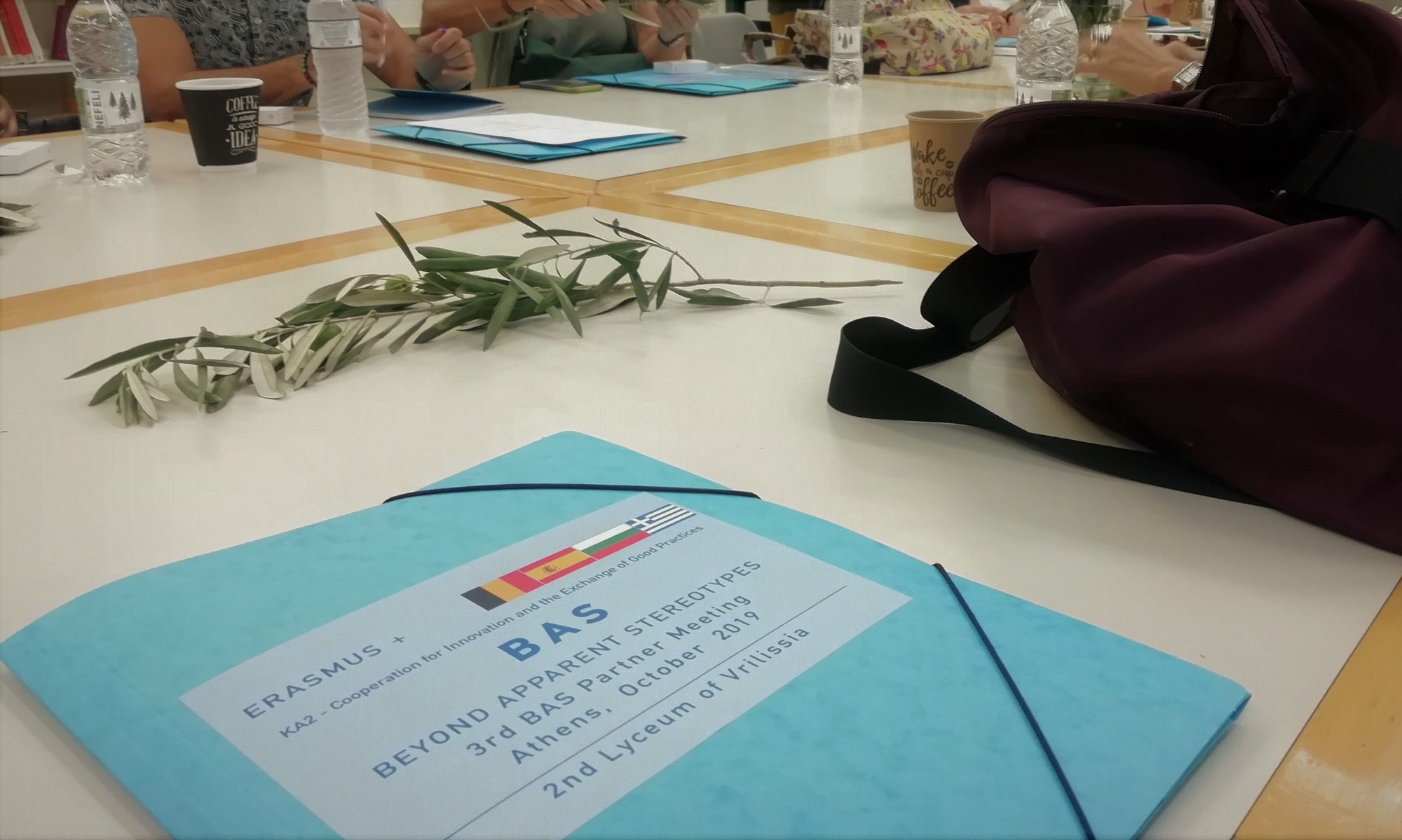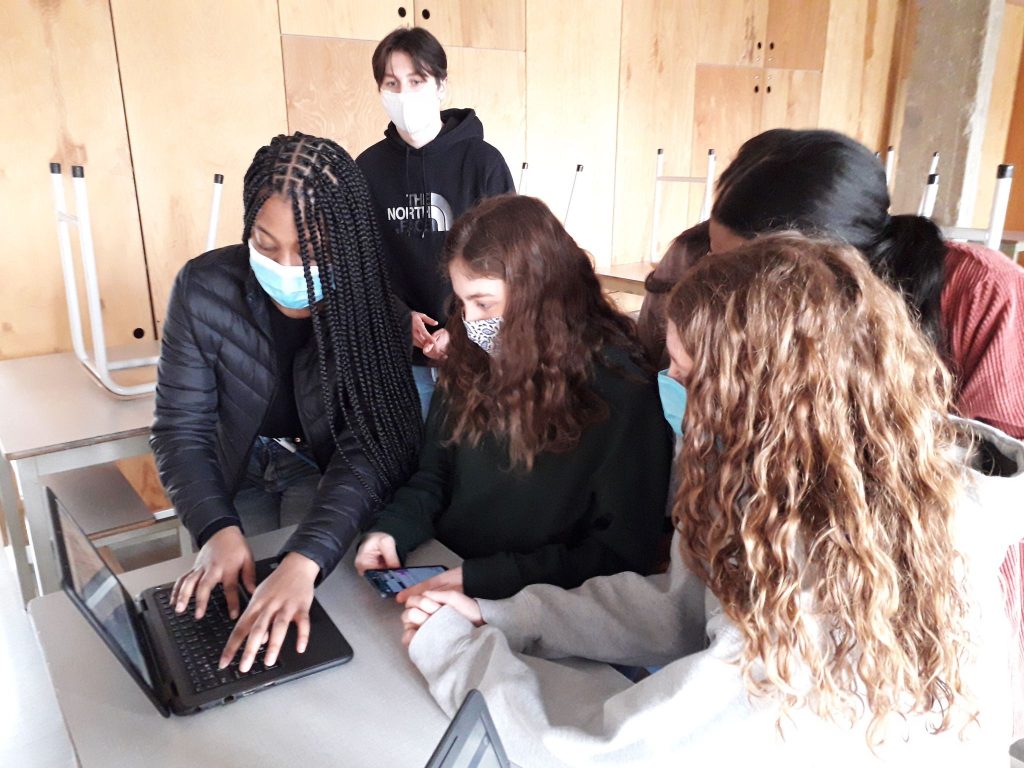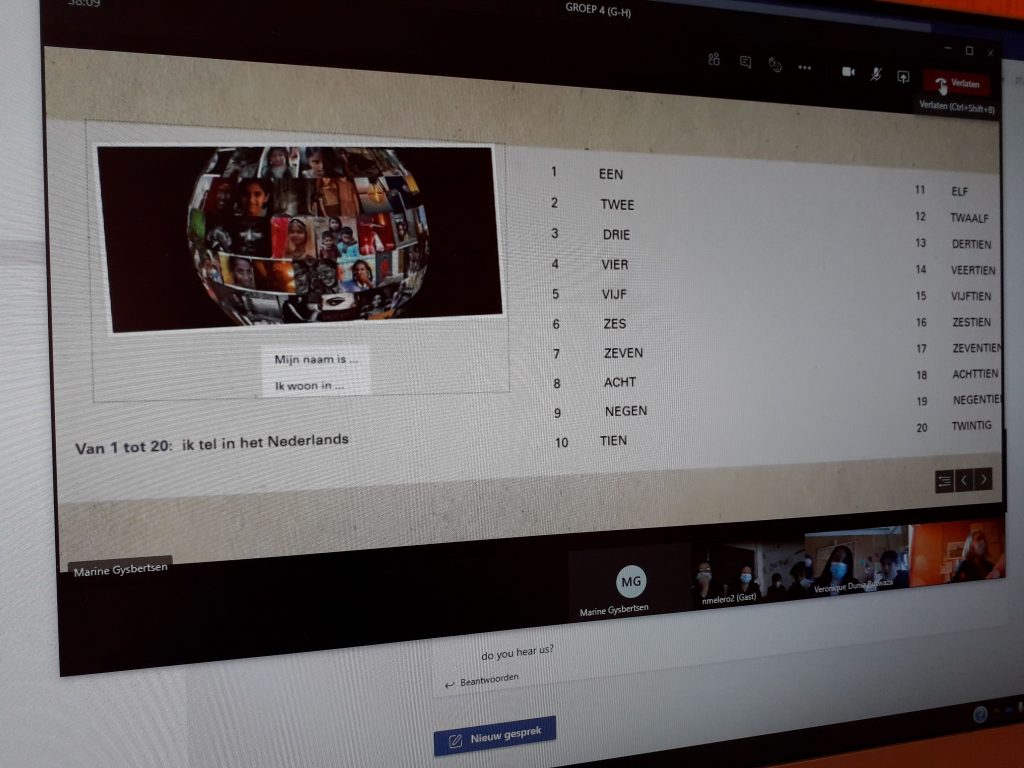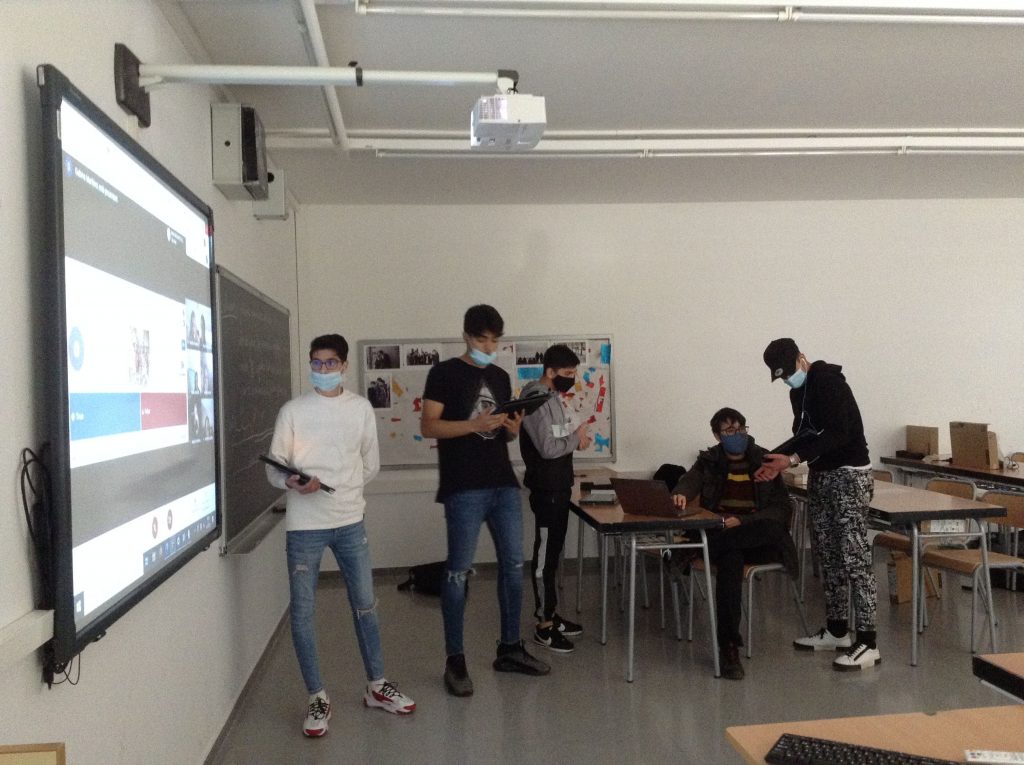On some occasions physical exchanges must be adapted into virtual exchanges due to a range of factors which don’t allow the implementation of face-to-face meetings. In the case of BAS project because of the Covid-19 crisis, the initial planned physical trips had to be adapted in terms nature of the activities.
The crucial on-site phase involving active learning, experiencing the other culture, and providing opportunities for informal interactions and socialising, had to be shifted to the screen. Many of the original planned activities were outdoor activities (field trips, sightseeing, museums, participative sport and art events) and their implementation was no longer possible. Those “outdoor” activities and visits were replaced with video presentations, online discussions, quiz sessions, art sessions and language exchanges, among others.
Images (from left top to bottom right): Students discuss in groups with their peers from the other country (Sofia-Brussels exchange), Online Dutch language session (Brussels-Barcelona exchange), Kahoot quiz session (Athens-Sofia exchange), Art session with local artist (Barcelona-Athens exchnage), Kahoot quiz session (Brussles-Barcelona exchange).
Teachers in partner schools managed to motivate students and to prepare a week of virtual exchange by paying special attention to the original objectives and spirit of the BAS project. Yet, the virtual field trip is a digital stimulation and cannot be considered equivalent to real-life experiences as all the interactions are controlled by the technical conditions. Informal social encounters and the building of personal relationships resulting from sharing space and time at the destination, is less to happen and the cognitive experience of the destination cannot occur. However, the BAS experience has shown that while virtual exchanges are digital simulations, they still can provide effective authentic learning experiences and enable the cultivation of a healthy intergroup contact.
Check out the BAS Toolbox and the BAS Research Report and find out more on the virtual approach and the activities implemented.





